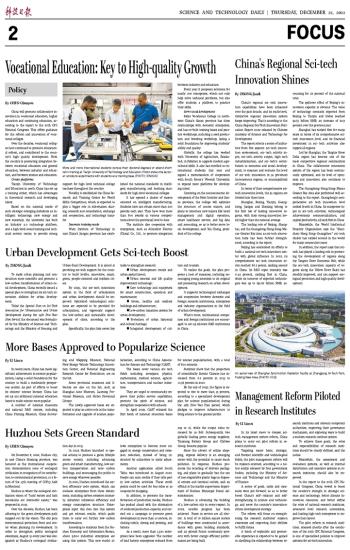
In its latest move to deepen sci-tech management system reform, China plans to carry out pilot reform in research institutes.
Targeting major basic, strategic, and frontier scientific and technological fields, the pilot management reform will be mission-oriented, according to a notice jointly released by four government bodies, including the Ministry of Science and Technology and the Ministry of Finance.
A series of goals, tasks and measures were put forward, so as to better boost China's self-reliance and self-strengthening in science and technology, and serve the country's innovation-driven development strategy.
The reform will focus on strengthening the research institutes' mission awareness and improving their abilities to fulfill duties.
A batch of replicable and promotable experience is expected to be gained in clarifying the relationship between research institutes and relevant competent authorities, improving their governance mechanism, and exploring ways to build a modern research institute system.
To achieve these goals, the roles and responsibilities of research institutes should be clearly defined, said the notice.
Meanwhile, the assessment and evaluation systems, as well as internal distribution and incentive systems in research institutes, should also be improved.
In the report to the 20th CPC National Congress, China vowed to boost the country's strength in strategic science and technology, better allocate innovation resources, and better define the roles of national research institutes, advanced-level research universities, and leading high-tech enterprises to improve their layout.
The pilot reform in research institutes, released shortly after the conclusion of the 20th CPC National Congress, is one of specialized policies to improve systems for sci-tech innovation.


 Next
Next




